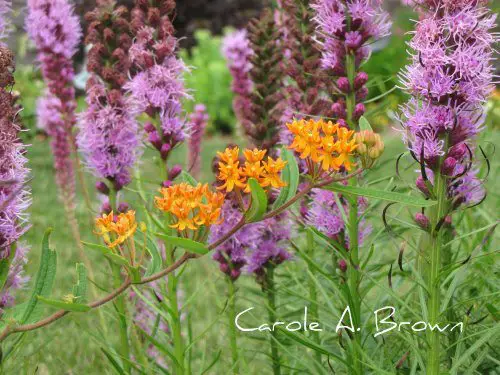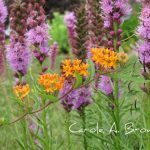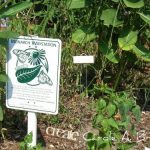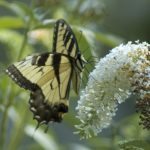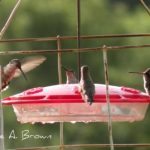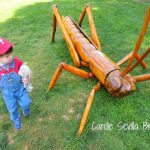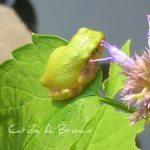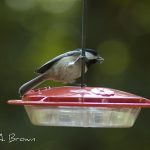Here at Ecosystem Gardening we’ve been discussing the goal of adding more native plants to our gardens to increase the value to wildlife in our landscapes.
But did you know that saying the words “native plant” will send some in the gardening world into passionate heated arguments? I am finding this out with repeated frequency. There really are places where this is a dirty word.
I guess it should be no surprise that this happens, given the lack of actual political discussion in this country. Instead we have two sides, firmly entrenched in their beliefs who hurl hate-filled vindictive speech back and forth at each other and no actual conversation actually takes place (and nothing gets done).
Apparently our society is built on this model: choose your side, refuse to listen to anyone who didn’t choose that side, and hurl flaming arrows of verbal abuse at each other.
But gardeners? Really?
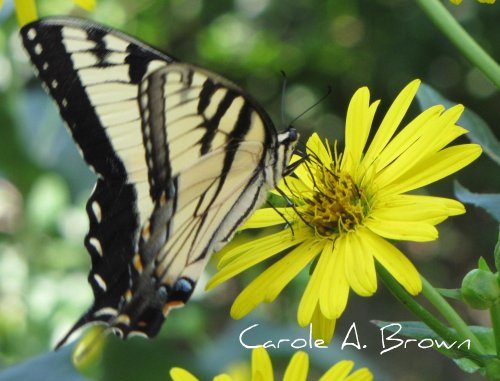
I’ve been called a native plant nazi, a meanie-greanie, and worse. And sadly, I’ve also seen some native plant advocates call others irresponsible, ignorant, and uninformed. I’ve heard people say “You can have this invasive plant when you pry it from my cold dead fingers.”
Kind of sounds just like that gun control argument, doesn’t it? But why? Why do we heap such abuse on each other? This is a very sad state of affairs to me that gardeners treat each other with such disrespect.
I’ve also seen a website that trashed a book because of the over 300 pages in that book, she dared to mention the value of native plants to wildlife and ecosystem health in 3 of those pages.
So What is All the Fuss About Native Plants?
First, let me clearly state that I have never advocated here that you have only native plants in your wildlife garden. It’s not a good idea to remove all of the exotic plants from your garden, and start from scratch. That would be an overwhelming project.
What I do encourage people to do is to increase the proportion of native plants because native plants support more wildlife. And I strongly discourage the sale, purchase, and planting of invasive plants, which are destroying our natural ecosystems at an alarming rate.
Native Plants Support More Wildlife
Native plants are important because they support local food webs. Over the millenia native plants and insects have evolved together, acting and reacting on each other.
A plant would develop some kind of defense to protect itself from insect predation. Most insects could not overcome those defenses so they moved on to another plant. But some insects did overcome those protections and are able to feed on specific plants that others cannot eat.
Most insects are now specialists. That means that they can only eat one specific plant, or one family of plants.
Now, why would we possibly want to encourage insects in our gardens? Birds!
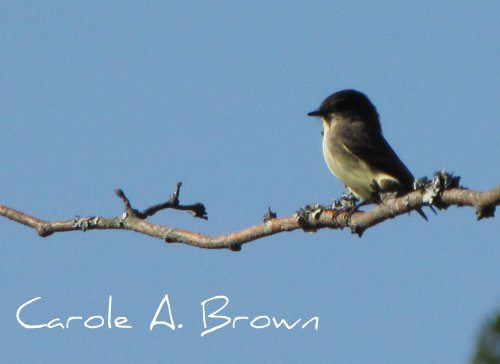
Native plants and insects form the base of the food web that supports all other wildlife. Without those insects we would have no birds because 96% of our land birds feed insects to their young, no matter what those birds eat as adults.
Wildlife Declines Are Due to Habitat Destruction
In our quest to have a Starbucks and Walmart in every neighborhood, as urban areas have spread into suburbia and further still into exurbia, we have destroyed a lot of habitat for wildlife, leaving them no place to go.
This is where ecosystem gardening comes in. Your wildlife garden can make a very crucial difference for many species of wildlife.
When we choose to become stewards of our properties and create welcoming habitat for wildlife, we are choosing to give something back to the wildlife that are dependent on those ecosystems.
Your wildlife garden can be a living ecosystem, supporting wildlife in the soil, in your choice of native plants, and by creating habitats that provide food and water, and shelter and safe places for wildlife to raise their young.
Since native plants are the basis of the foodweb that supports these ecosystems, it only makes sense to add more of them to our gardens, and to choose those native plants that offer the most value to wildlife.
More From Ecosystem Gardening:
Submit your review | |

